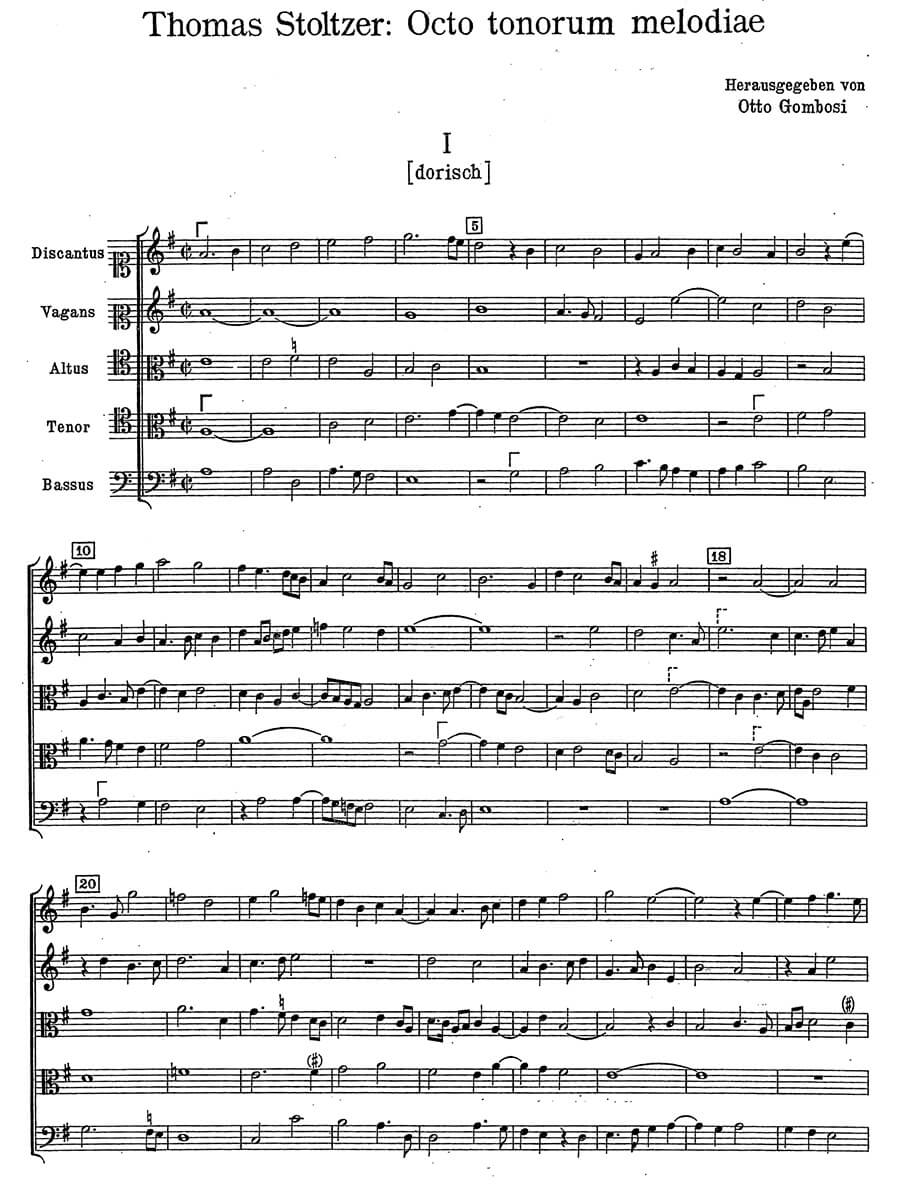Octo tonorum Melodiae, five-part fantasies in the eight church modes, instruments ad libitum
Stoltzer, Thomas
15,00 €
Thomas Stoltzer – Octo tonorum melodiae
(b. around 1475, Schweidnitz, Duchy of Schweidnitz – d. near Znojmo, South Moravia, March 1526)
Preface
Thomas Stoltzer, born around 1475 in Schweidnitz, Silesia, is one of the leading German composers of his generation, alongside Ludwig Senfl (around 1490-1543). Although the liturgically bound Latin motet was at the center of his musical oeuvre throughout his life, two other genres are today firmly associated with Stoltzer‘s name: In addition to the German psalm settings based on the transcriptions by Martin Luther, which are considered the oldest contributions to polyphonic psalm composition in a national language, these are the Octo tonorum melodiae presented here, which as an instrumental work is not only unique in the surviving complete works of the composer, but also forms part of the small repertoire of polyphonic instrumental movements from the first decades of the 16th century. They are in any case worthy of special attention in the small repertoire of polyphonic instrumental movements from the first decades of the 16th century.
Reliable biographical information on Thomas Stoltzer‘s youth and education is missing. He came from a family of the upper middle class of the town. Clemens Stoltczer1, who is documented as the town clerk in Schweidnitz between 1485 and 1495 – possibly the father of the composer – was temporarily at the head of the Schweidnitz town administration. Presumably Thomas Stoltzer first attended the traditional Schweidnitz Ratsschule, which can be traced back to 1284. No evidence of subsequent university studies or graduation has been found so far, instead Stoltzer pursued a spiritual career. There is documentary evidence that he became a priest in Breslau in 1519. The accounts of the Breslau Cathedral Chapter list him as a clergyman without residence obligation („vicarius discontinuus“), who only had to officiate on important feasts. Stoltzer also had an altar benefice at the city church of St. Elisabeth in Wroclaw, which ensured him a steady, well-endowed income throughout his life. Although personally sympathetic to the teachings of Luther and the Reformation, Stoltzer never openly broke with the priesthood of the old church as the basis of his economic and artistic existence.
Read full preface > HERE
| Score No. | 4418 |
|---|---|
| Edition | Repertoire Explorer |
| Genre | Chamber Music |
| Size | |
| Printing | Reprint |
| Pages | 28 |
